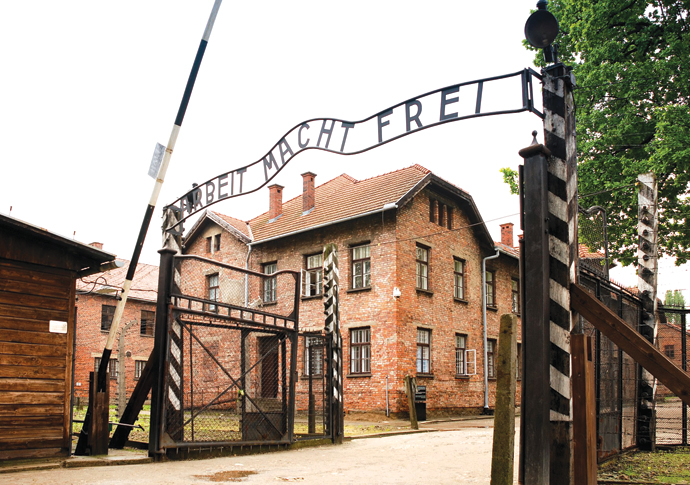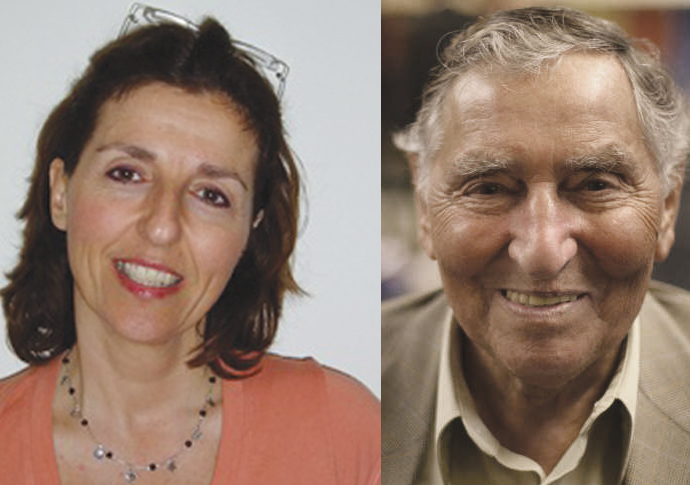Horrific Holocaust stories remind us helping refugees is humane thing to do
Survivor’s daughter among speakers at memorial day event
Friday, 27th January 2023 — By Izzy Rowley

Never again: More than 1 million people were killed by the Nazis at the Auschwitz camp
[xiquinhosilva_CC BY 2.0]
THE daughter of a Holocaust survivor is calling for people to have more humanity for refugees and remember they are an essential part of the UK.
Ros Gelbart, a speech and language professor at City University, is due to speak about her father, David Herman, at a Holocaust Memorial Day event this morning (Friday).
“I think my dad’s story has a lot of current relevance, the whole business with Brexit and the problem that we perceive having too many immigrants as being a negative thing,” she said.
“We need to consider that that isn’t always the case. Firstly, it’s a humane thing to help people who are at the lowest point of their lives and as a society we ought to value that and see it as an important thing to do.
“People that come through these horrors are not a permanent drain on society – they can contribute. My dad had a family and a successful business.”
Professor Gelbart added: “What happened in the Holocaust was obviously completely terrible and you’d hope it would never happen again.
“But it’s so easy for people to forget it and we see the atrocities that have happened again all over the world. People need reminding of how low humanity can sink.”
Mr Herman was born in 1926 in Czechoslovakia, but tragically his parents and most of his extended family died in Auschwitz concentration camp.

Ros Gelbart and her father David Herman
“My dad grew up in a border town and was one of a large family, and he was part of a very big Jewish community. Two- thirds of the population were Jewish,” said Professor Gelbart.
“He had a very happy childhood with a very diverse community. There were lots of different ethnic groups around him – Hungarians, Germans, Czechs, and a big Roma community. He didn’t recall there ever being difficulties between communities until the war broke out.
“Then the family had to move because of the antiSemitism – Jewish people were being attacked in the streets.
“They moved to an area they thought would be safer because it was a Jewish area, Munkacs. But that became a Jewish ghetto. He was separated from his siblings at Auschwitz when he was 16.”
She added: “He was very strong and looked older than his age, so he convinced the people in the camps that he had a trade and could work. He went through five different labour camps, and then he got wounded and got typhus.”
“Allies were approaching and evacuating camps, and at this point he ended up in Theresienstadt, another concentration camp, where he was so ill he was hospitalised, and while he was in a coma the camp was liberated. He was looked after and he got healthier, and he left.
“Then he came to the UK with The Boys, and lots of them ended up staying here or building lives in other European countries.”
Mr Herman moved to the UK in 1946, and lived in Hampstead Garden Suburb until he passed away in 2008.
He had helped set up a charity in 1963 called the ’45 Aid Society which supports Holocaust survivors and their families, “that continued that cycle of giving back,” says Professor Gelbart.
After the war, her father became an international fashion designer, forming a company called Herwa Fashions, a portmanteau of his name and that of his wife, Olive Warner.
“My dad sold his patterns all over the world. He travelled to Hong Kong, Canada, Europe, America,” said Professor Gelbart.
“He decided to become a pattern cutter and went to study it at Northampton Polytechnic, which is now City University where I’m a professor. He was very successful, and very creative.”